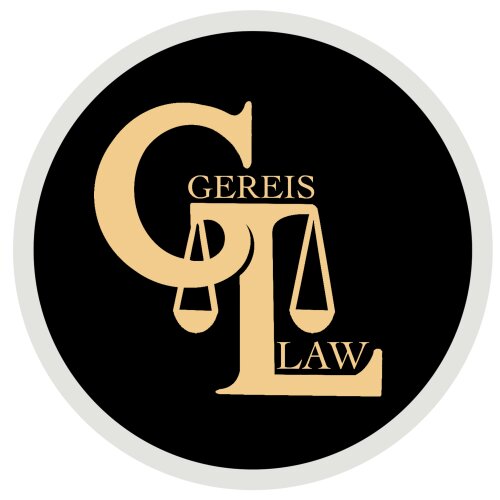Best Antitrust Litigation Lawyers in Vermont
Share your needs with us, get contacted by law firms.
Free. Takes 2 min.
Or refine your search by selecting a city:
List of the best lawyers in Vermont, United States
About Antitrust Litigation Law in Vermont, United States
Antitrust litigation focuses on enforcing laws that maintain fair competition and prevent unlawful business practices such as price-fixing, monopolies, market allocation, and bid-rigging. In Vermont, as in the rest of the United States, both federal and state laws apply to antitrust matters. These laws aim to ensure a competitive marketplace, benefiting consumers and allowing businesses to compete fairly. When companies engage in activities that harm competition or manipulate the market, they may be subject to lawsuits initiated by individuals, businesses, or government agencies to restore fairness and compensate those injured by illegal practices.
Why You May Need a Lawyer
Antitrust litigation can be complex, involving intricate legal and economic analyses. Individuals and businesses might need a lawyer in situations such as:
- Suspecting or discovering that a competitor is engaging in illegal anti-competitive practices such as price-fixing or bid-rigging.
- Becoming the subject of an antitrust lawsuit or investigation brought by the Vermont Attorney General, the federal government, or a private party.
- Wanting to report or seek damages for antitrust violations that have affected their business or livelihood.
- Reviewing or negotiating mergers, acquisitions, or collaborations that may raise antitrust concerns.
- Defending against claims of monopolization or unfair trade practices.
- Responding to government inquiries or subpoenas related to potential antitrust violations.
A qualified antitrust lawyer can help you navigate the laws, gather evidence, represent your interests in court, and negotiate settlements when appropriate.
Local Laws Overview
While federal antitrust laws such as the Sherman Act and Clayton Act apply nationwide, Vermont also enforces its own antitrust statutes. The Vermont Consumer Protection Act gives the Attorney General the authority to investigate and prosecute violations of both state and federal antitrust laws within the state. Important points include:
- Vermont law prohibits unfair methods of competition and unfair or deceptive acts in commerce.
- Both civil and criminal penalties may apply for serious violations.
- The Attorney General’s Office actively monitors for anti-competitive behavior, especially in sectors like healthcare, retail, and manufacturing.
- Individuals and businesses harmed by anti-competitive conduct can bring private lawsuits to seek damages or injunctive relief.
- Antitrust claims in Vermont often proceed through the state’s court system, but some cases may be removed to federal court if federal laws are implicated.
Frequently Asked Questions
What activities are considered antitrust violations?
Common violations include price-fixing agreements, bid-rigging, dividing up markets, creating monopolies, and engaging in conduct that unreasonably restrains trade or competition.
Who can file an antitrust lawsuit in Vermont?
Lawsuits can be initiated by individuals, businesses, the Vermont Attorney General, or federal agencies. Private parties can seek compensation for damages caused by anti-competitive practices.
What remedies are available in antitrust cases?
Remedies may include monetary damages, injunctive orders to stop illegal conduct, dissolution of unlawful contracts, and sometimes criminal penalties for the most serious violations.
How long do I have to file an antitrust claim?
The statute of limitations varies based on the type of claim, but generally, antitrust actions must be brought within four years of the alleged violation. Consulting an attorney promptly is important to preserve your rights.
How does Vermont’s antitrust law differ from federal law?
While similar in purpose, Vermont law may offer different protections or procedures, and the Vermont Attorney General can pursue state-level claims even if federal agencies do not act.
What should I do if I suspect an antitrust violation?
Document your concerns, preserve any relevant evidence, and consult an antitrust lawyer as soon as possible. You may also report concerns directly to the Vermont Attorney General’s Office.
Can antitrust cases be resolved out of court?
Yes, many cases settle before trial. Settlements can involve compensation to harmed parties, agreements to change business practices, or other remedies.
What kinds of businesses are most often involved in antitrust cases in Vermont?
While any business can be involved, industries such as healthcare, retail, energy, and transportation often see more antitrust activity due to their impact on consumers and the marketplace.
Will a business be shut down if found guilty of antitrust violations?
Not necessarily. Remedies focus on ending the illegal behavior and preventing recurrence. In some extreme cases, however, companies may be broken up or barred from certain activities.
How are damages calculated in antitrust cases?
Courts may award actual damages suffered due to the violation and can triple the damages under federal law. Calculations often require expert analysis of lost profits or market effects.
Additional Resources
If you need more information or assistance regarding antitrust litigation in Vermont, you may find the following helpful:
- Vermont Attorney General’s Office - Consumer Protection Unit
- Federal Trade Commission (FTC)
- United States Department of Justice - Antitrust Division
- Vermont Bar Association - Lawyer Referral Service
- Legal aid organizations in Vermont that assist with consumer and small business issues
Next Steps
If you believe you may be involved in or affected by an antitrust violation:
- Gather and preserve all relevant documents, communications, or transaction records.
- Consult with an attorney experienced in antitrust litigation to review your situation and advise on legal strategy.
- If you need help finding an attorney, contact the Vermont Bar Association or use a local lawyer referral service.
- Report any suspected violations to the Vermont Attorney General’s Office if appropriate.
- Stay informed about your rights and responsibilities during ongoing investigations or lawsuits.
Taking prompt action and seeking guidance from qualified legal counsel can help protect your interests and ensure you comply with all relevant antitrust laws in Vermont.
Lawzana helps you find the best lawyers and law firms in Vermont through a curated and pre-screened list of qualified legal professionals. Our platform offers rankings and detailed profiles of attorneys and law firms, allowing you to compare based on practice areas, including Antitrust Litigation, experience, and client feedback.
Each profile includes a description of the firm's areas of practice, client reviews, team members and partners, year of establishment, spoken languages, office locations, contact information, social media presence, and any published articles or resources. Most firms on our platform speak English and are experienced in both local and international legal matters.
Get a quote from top-rated law firms in Vermont, United States — quickly, securely, and without unnecessary hassle.
Disclaimer:
The information provided on this page is for general informational purposes only and does not constitute legal advice. While we strive to ensure the accuracy and relevance of the content, legal information may change over time, and interpretations of the law can vary. You should always consult with a qualified legal professional for advice specific to your situation.
We disclaim all liability for actions taken or not taken based on the content of this page. If you believe any information is incorrect or outdated, please contact us, and we will review and update it where appropriate.
Browse antitrust litigation law firms by city in Vermont
Refine your search by selecting a city.














